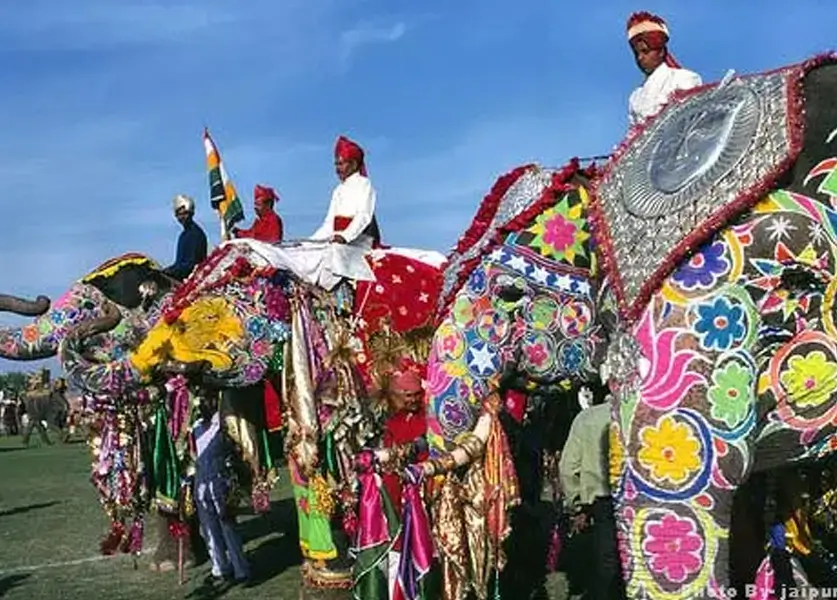
The Hindus consider elephants sacred. They are related to Buddhism and Jainism. This animal holds a special place in Indian mythology. Ganesh, the elephant-headed God, is venerated and worshipped throughout the country because he is thought to be the remover of impediments. Additionally, the elephant is considered one of the Navratnas retrieved during the Samudra Manthan. The Elephant Festival in Jaipur celebrates our rich past by combining royalty and custom.
Rajasthan has been home to numerous royal figures in the past. During their reign, elephant fights were staged to entertain the royalty. Since its inception, the festival has attracted a large number of tourists and guests. The location was recently shifted from Chauhan Stadium to Jaipur Polo Group grounds due to its growing popularity.
Due to criticism from the Animal Welfare Group, the Rajasthan Tourism Group was forced to cancel the event for two years in a row, in 2012 and 2014. The members of the Welfare group were concerned about the elephants' safety after they were doused with a chemical paint.
They also concluded that the elephant parade fell within the category of Animal performance, necessitating the elephants' registration with the Welfare organization. The host group had failed to do so and hence had to rename the holiday as Holi.
The elephant festival Jaipur celebration is held during Phalgun Purnima in February/March, on the eve of Holi, the festival of colors.
The elephants, well-groomed and decked with large velvet rugs and parasols, as well as other large jewelry like anklets and bells, march up and down proudly, like a model cat going across the stage to an appreciative audience. Mahouts decorate their ears and necks with ornate Indian designs, ear danglers, and colorful brocade scarves. Their tusks and foreheads are also decorated with jewels. The mahouts also dress up in shiny brocade jackets and thick turbans.
Every year it will be held in March during the Holi Festival. You may celebrate Holi without elephants, with music, dance, food, Indian games, and so on. This covers only feeding elephants. The cost of this package is approximately INR 1,500 per person.
A variety of musical instruments, such as the nagara and the bankia, are played to announce the arrival of the elaborately decorated elephants with their mahouts. The procession is then led by the female elephants, which a large crowd turns up to watch. The festival offers unique activities such as elephant races, tug of war, elephant polo and live performances by dancers and musicians. The parade also features palanquins, chariots and lancers on horses and camels. The Elephant Festival doesn't seem to be returning to Jaipur anytime soon. Some service providers in Jaipur carry forward the tradition and offer a unique blend of Holi and elephant celebrations. The ElyHoli festival is undoubtedly the biggest. It is a local Holi festival with elephants that is celebrated at the Elephant Park near Jaipur's Amer Fort.
The Elephant Festival falls on the Holi Festival.
The elephant festival is free for all. There are no charges, and there are no eligibility requirements. So, enjoy the festival at no cost.
No, the official Elephant Festival has been banned. However, you can find private Holi festivals with elephants such as ElelyHoli Fest and others.
Other notable festivals of Rajasthan are Gangaur, Teej, Pushkar Fair, Nagaur Fair, Summer Festival, Winter Festival, Jaipur Literature Festival and others.
Elephants were indicators of royalty and wealth. To celebrate this culture, Rajasthan celebrated the Elephant Festival in Jaipur. These also included animals such as horses and camels.
The Elephant Festival was celebrated in Jaipur, Rajasthan until 2011.